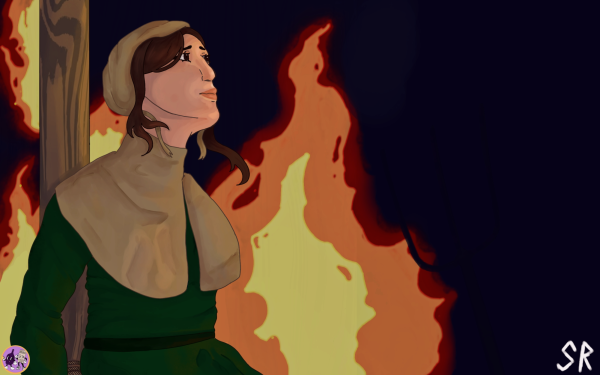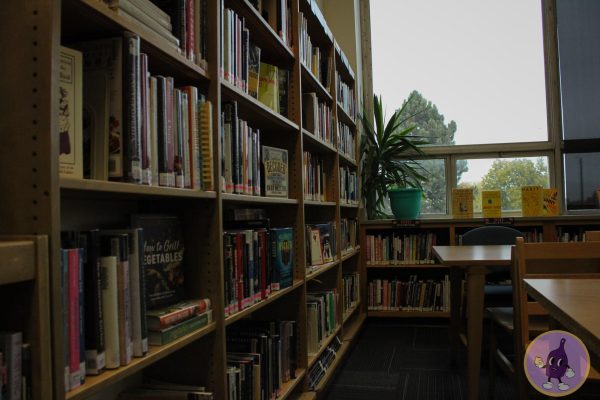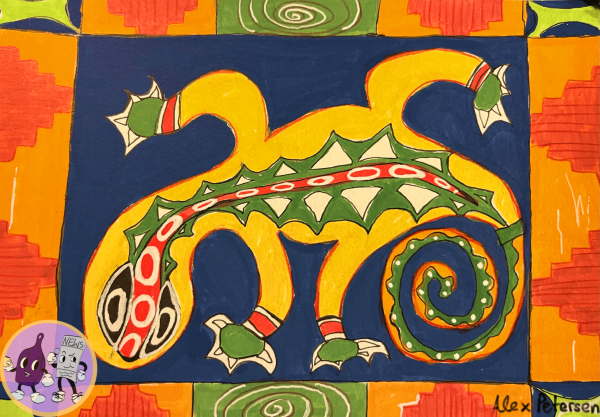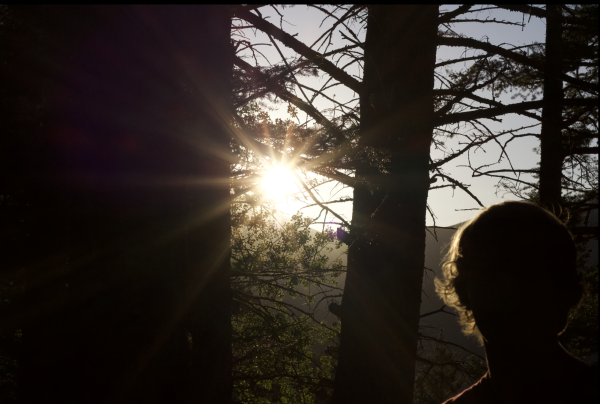THE ORIGINS OF HALLOWEEN
The first celebrations of Halloween
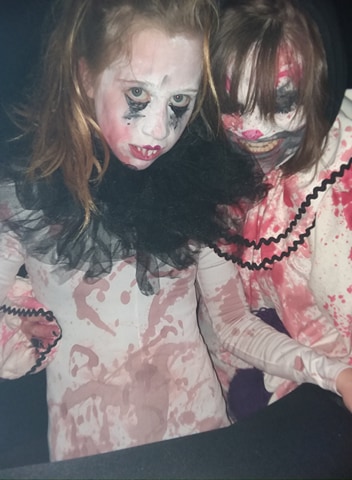
Two Clowns, covered in smudgy face paint and fake blood.
October 31, it’s a full moon. Your mom is waiting in her van for you to get that last house in your neighborhood. A doorbell rings, you say trick or treat! The man standing in the doorway hands you another pencil and green apple. All your hard work making a costume to come home with a garbage bag full of raisins, apples, pencils and that one king size candy bar you got from the rich house down the road. This is the one day a year everyone comes together to dress up and hand out treats. Yet what are we actually celebrating?
“Crops and animals were burned as sacrifices and effigies were burned in hopes to expel undesirable events for the new year”
Halloween is a huge celebration today with trick or treating, dressing up in costumes, and carving pumpkins, but the actual beginnings of Halloween are none of the sorts. Halloween has in truth, been a celebration of the Celtics, called Samhain, and has evolved into Halloween over the course of centuries. In Samhain the Celts would commemorate the new year. They would await the sunrise of October 31 towards November 1.
It was believed to be the night that the bountiful summer was over and would lead into the harsh, grim winter. The tale goes that Samhain was a celebration that the dead and spirits would cross to the living on that day. Now the Celts never viewed the dead as evil or fearful, they welcomed the spirits. However they believe some spirits were unwanted. The Celts would build bonfires and wear animal skins or masks as costumes that symbolized death to warn off those unwanted spirits. Crops and animals were burned as sacrifices, and effigies were burned in hopes to expel undesirable events for the new year. The Celts also held feasts and believed that the good spirits would bring fortune for the time’s coming. These spirits would bring insight and visions to the Celtic priests of hope for the future. Once the sun came and the day passed, the Celts would relight the fire for protection in the new year starting November 1. Other groups of people have been inspired by Samhain and have combined their celebrations with the Celtic’s. After invading, the Romans, being one of these groups of people, combined their views and created what’s called Feralia. This Celebration was very similar to Samhain. The Romans would honor the unliving on one day, and the next for the Roman Goddess of harvest, Pomona. On the other hand, Christians in the 9th century had their own celebrations. The Christians held a celebration over the course of three days. October 31, is known as All Hallows’ Eve, which is the day before the feast of All Saints’ day marked on November 1. All Saints’ day was spent to commemorate the saints of the church. On the last day, November 2, Christians celebrated All Souls’ day where they honored the dead resembling the Celtic tradition. Christians would also hold bonfires and dress themselves in costumes for their tradition. Samhain has been a tradition that has carried through many alterations and has become more of a non religious holiday in today’s time.
Samhain has developed and adapted to changing culture around Europe. The Halloween holiday has traveled all around the world and can be seen celebrated everywhere. Nowadays we do not worship Celtic Gods, or sacrifice animals as the ancient Celts did, however we do wear costumes and honor the dead through those traditions. October 31 is a special day to say the least. Whatever you believe, Halloween is able to be celebrated through any practice allowing that day to be universal to everyone.
Sources:
History.com Editors. (2009, November 18). Halloween 2022. History.com. Retrieved October 4, 2022, from https://www.history.com/topics/halloween/history-of-halloween#ancient-origins-of-halloween
Trevarthen, Geo Athena. “The Celtic origins of Halloween transcend fear.” Phi Kappa Phi Forum, vol. 90, no. 3, fall 2010, pp. 6+. Gale Academic OneFile, link.gale.com/apps/doc/A239169935/AONE?u=googlescholar&sid=bookmark-AONE&xid=b3e8b65a. Accessed 4 Oct. 2022.
Britannica, The Editors of Encyclopaedia. “Halloween”. Encyclopedia Britannica, 31 Aug. 2022, https://www.britannica.com/topic/Halloween. Accessed 4 October 2022.
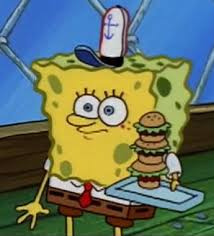
“They’re making us think our thoughts are what we’re thinking…I think” -Patrick Star



